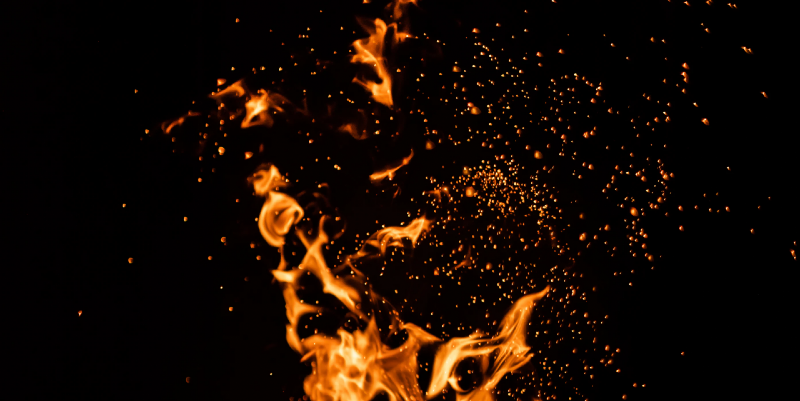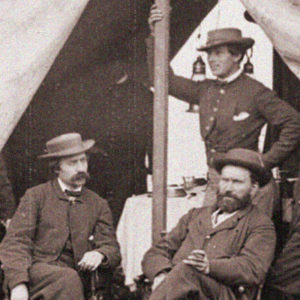The world is terrifying.
It seems like such an obvious thing to say, right? Of course, the world is terrifying! Turn on the news! Look around! The world’s always been terrifying! Still, when I think about what that means in practice, not in theory, the terror becomes sharper, more realized around its edges. I’m bombarded with tragedies at the mere click of a button, a news app that pops into my notifications every fifteen minutes. Whenever I see a college campus trending, I feel something sink inside of me, heavy and tired.
And whenever I see a news story with a Black person’s photo front and center, I hold my breath.
I’ve wondered if there’s a name for the feeling I’m describing, where you have to steel yourself before reading about yet another victim, another avoidable death that you can’t quite wrap your head around. I also wonder if the name for it changes when it’s something you’ve been experiencing ever since you were a child, reading about Emmett Till in your third-grade history class.
Traumatic déjà vu. A sense that we’ve been here before and that we’ll be here again.
It’s a feeling that I couldn’t get away from in the summer of 2020. While I’d been experiencing this particular brand of traumatic déjà vu for a long time, it was the first time that other people seemed to be feeling it too, people who didn’t look like me. It was a moment of unexpected unity as people flooded the streets, crowds overflowing with diversity and united with a singular purpose: to demand justice in an unjust land.
And, for a moment, it seemed like the world was on fire.
I think about the summer of 2020 a lot, about the hopelessness, about the passion and determination. I think about black squares on social media sites and promises made to diversify companies, thoughts, and surroundings. I also think about how scared I was, about how badly I wanted there to be justice, and how much I wanted there to be consequences for all the pain caused throughout the years.
I think about George Floyd. I think about Breonna Taylor.
I think about Philando Castile. I think about Trayvon Martin.
I think about Latasha Harlins.
I think about a long list of names of dead people who shouldn’t be dead.
And then, I think about the beauty of thrillers.
I’ve been drawn to the thriller genre ever since I was a little kid. There was something that captivated me about imperfect people taking life into their own hands, women with bad intentions and sharp knives, and women who were wronged and felt like doing something about it. Sometimes, they were just women who wanted more, who wanted what they thought they’d always deserved.
From Misery to The Hand That Rocks The Cradle to Fatal Attraction, I was consuming all kinds of thriller media that I was probably (definitely) too young to be engaging with. But there was something about these often-complicated stories that kept calling to me, that kept bringing me back.
As I got older, I realized that I was so drawn to the genre because it provided me with something that often eluded me in real life: a satisfying resolution. Being marginalized in America is nothing short of a wild ride, complete with an understanding that nothing is made for you, and nothing is made to serve you. You can’t expect things like justice to be part of your everyday reality, and you certainly can’t expect to be saved from becoming a news story just because you do or say all the right things.
This is an aspect of the world that buries itself down to your bones. It stays with you like a second skin, rearing its head in even the most innocuous interactions. The knowledge that things can turn on a dime, that someone can say the wrong word, give you the wrong look, and you realize that your world might be about to turn upside down…
It’s a tilted experience, one that’s often hard to describe to those without any inherent insight into it. Feeling safe is never so simple, feeling understood is never so reachable. It’s a constant state of movement, whether you like it or not, a delicate dance that requires rapt attention and near-constant shifting (code-switching, anyone?).
Because in real life, there’s no balance to things, no correction to its ups and downs. There are only micro-aggressions and macro-aggressions, idly wondering if anyone’s going to do anything about the guy with that “The South Will Rise Again” bumper sticker on the back of his car. There’s also knowing when to pick your battles, like realizing that if you wanted to take a black marker to the bumper sticker until it read something like “Just Take The L” you’d be the one sitting in front of HR and not the guy dedicated to The Lost Cause.
But in a thriller? Everything is answered for, every moment of darkness is controlled, and every action has an equal or opposite reaction. It can be beautiful chaos, with twists no one sees coming, pieces that don’t quite make sense until you have a bird’s eye view. And yet, the resolutions tend to be satisfying, whether or not you were rooting for the good guy or the bad guy.
Which is something else I love about the genre. The Bad Guy. So often in a thriller, The Bad Guy is someone who turns out to not be so bad, after all. Their actions might be unforgivable but you understand them, their need to be desired, their need to seek revenge. You might even find yourself crossing your fingers that they’re successful, that somehow, in the end, they come out on top. It’s a genre where unlikable protagonists thrive, where having the worst intentions doesn’t always make you the worst character in the book.
It’s one of the reasons I chose to write thrillers. I needed a genre where I’d be free to explore complicated feelings, the kind of things you second-guess telling your therapist because you don’t want them to judge you too harshly. I also needed a genre that was downright welcoming to unlikable female characters, women you’d never want to be friends with in real life, but who you’d enjoy talking about for a few hours. I wanted my characters to be as messy as they were compelling, as problematic as they were heart-wrenching.
And I wanted a world where every moment is answered for.
I try not to be too heavy when talking about While We Were Burning. It’s often a task full of paradoxes, where I attempt to balance the impossible, keeping a smile on my face while giving a rundown on the book’s themes (social justice, racism, classism, the harm that people can do to each other without even really trying…). But I always wanted my work to be accessible, something that doesn’t feel like it’s trying to moralize or tell you how to live your life. For one, I don’t believe in perfect people, which translates into no perfect characters either.
More importantly, I think there’s treasure to be found in the messiness of it all, the rough edges, the feelings that are too complicated, too much. To me, books are one of the world’s greatest empathy machines, and there’s so much value in connecting with people, so much joy that’s born when we realize we’re not alone in what we’re feeling. To quote James Baldwin, “You think your pain and your heartbreak are unprecedented in the history of the world, but then you read. It was books that taught me that the things that tormented me most were the very things that connected me with all the people who were alive, who had ever been alive.”
That being said, I can’t pretend as if the seeds of my book weren’t planted when they were, that I didn’t feel a particular dread in the summer of 2020 that kept me up at night. The world is terrifying, no matter how much I try to keep things light, try to keep things together instead of shutting down. And while I hope that readers can empathize with my characters, no matter how problematic, I also hope for something else, too.
I hope that my book makes people feel seen, their grief, their hopelessness, their wishing for a better world. I hope that the sense of traumatic déjà vu is lifted, if only for a moment, and that readers are transported to an alternate reality where actions have consequences, where the shadows will all be dealt with accordingly. I want readers to see my cast of imperfect characters and root for them, good or bad.
And maybe, just maybe, readers will feel a little spark that makes them want to change something for the better, whether that’s inside their hearts or out in the world at large.
Maybe, together, we can light a few good fires.
***


















